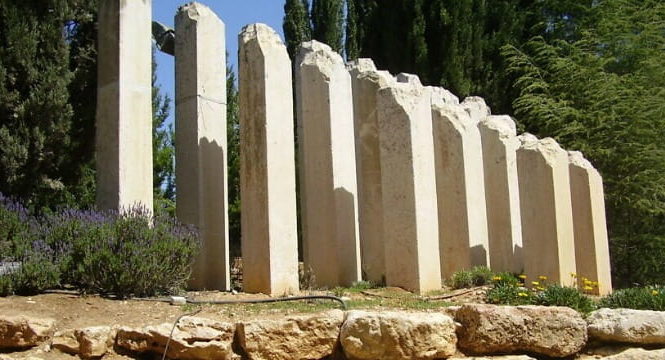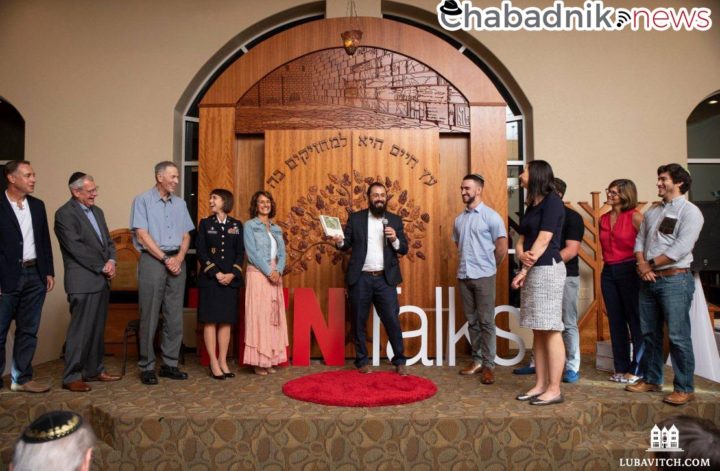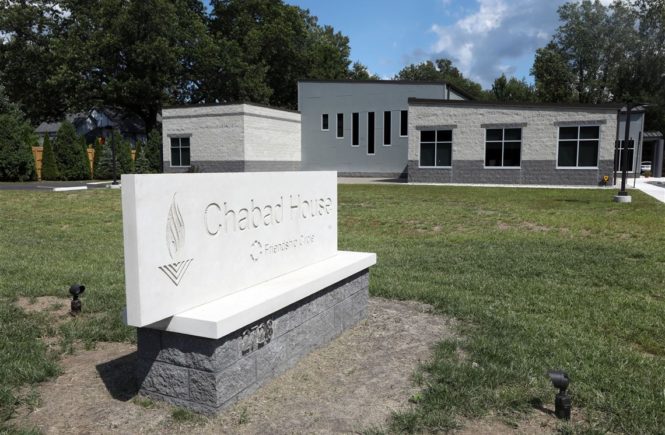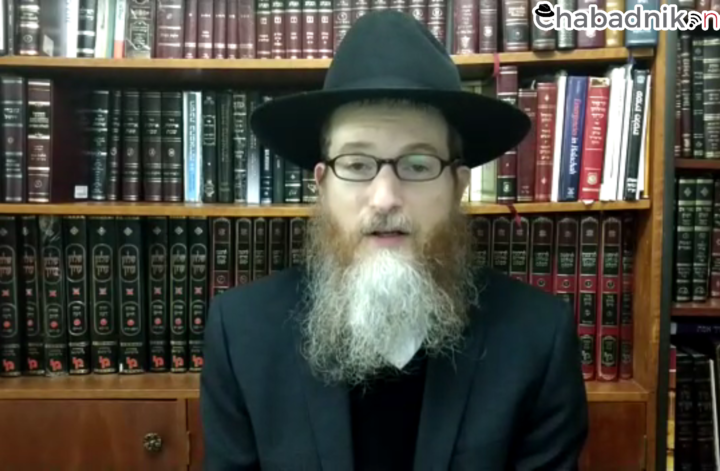Some 30 campus Chabad-Lubavitch emissaries concluded an eight-day training program at Yad Vashem in Jerusalem, learning cutting-edge tools that will allow them to teach about the Holocaust and the growing problem of Holocaust denial. Equally important was guidance on how to grapple with and counter increasing instances of antisemitism on college campuses.
The emissaries hailed from campuses in North America, Australia, and Austria, including Dartmouth College in New Hampshire, the University of Melbourne in Australia, the Lauder Business School in Vienna, and York University in Toronto.
The newly certified Holocaust educators trained at Israel’s official memorial to the victims of the Holocaust, representing the first time that Yad Vashem has gathered a group of campus leaders for an intensive training.
Rabbi Yisroel Bernath, who co-directs the Chabad center at Concordia University in Montreal with his wife Sara, called the experience “eye-opening and transformative,” and found meaning in “finding the humanity” within the Holocaust, which he said provides a new way to make sense of and connect to tragedy.
For students who find it difficult to connect to the Holocaust and its lessons, he said, “It is important, now more than ever, to have the right narrative.”
“There is an unspoken myth that young Jews are interested in the Holocaust,” he told JNS, noting that on his Canadian campus, it was like “pulling teeth” to get students to attend a survivor’s testimony.
Sara Bernath left with the understanding of “how precious our heritage is.”
Dalia Kulek, co-director at the University of Hartford-Rohr Chabad House in Connecticut with her husband, Rabbi Yosef Kulek, said that the entire week was an “aha moment.”
As a non-Ashkenazi Jew (her father is from Kurdistan and her mother is from Mexico), she said she didn’t learn much about the Holocaust growing up. As the number of survivors diminishes, she told JNS, “we need people to tell their story and do something to draw them in.”
“I am already planning classes,” she said.
Through the partnership between Yad Vashem and Chabad on Campus, said Rabbi Moshe Cohn, head of the Jewish World section at Yad Vashem, “thousands and thousands of young people will be exposed to Holocaust education with accurate history and proper pedagogy.”
This will “connect young people to their history and increase involvement with the Jewish community,” Cohn said, voicing his hope that this seminar will be replicated with other campus groups.
According to Rabbi Yossy Gordon, CEO of Chabad on Campus International, the importance of such a partnership lies in today’s distancing of young people from the Holocaust and, at the same time, the growing acceptance of antisemitism in the world.
“If we do nothing, the distant memory of the Holocaust will fade further and so will the opportunity for young people to embrace their Yiddishkeit, which would be a terrible crime,” Gordon told JNS.
With courses and teaching materials that preserve the memory of those murdered with “integrity, respect, and understanding,” the partnership with Yad Vashem, said Gordon, was “the way to go.”
Esti Hecht, co-director of Chabad at American University in Washington, DC with her husband, Rabbi Yehoshua Hecht, said that while “Holocaust education is equally important now as it was before, fewer people are in a position to educate, so educating the educators is more important.”
On campus, she said, Holocaust education has the potential to build empathy towards the Jewish community and help prevent antisemitism.
Hecht reflected on a particularly meaningful moment during the week: after she heard from a Holocaust survivor who was her son’s age during the years of World War II, she video-chatted with one of her sons, who had just received his first chumash (a printed Torah) in a school-wide ceremony.
“I was overwhelmed by the juxtaposition. Here I was with a child survivor who was forced to pretend to be Christian in order to survive — and very few children his age survived,” she said. “The Nazis tried to exterminate the Jewish people with a 90% success rate in many countries, but as I saw my child and 30 others in his school with strong Jewish identities, I understood that ultimately, the Nazis failed.”
“I am going home with a greater appreciation of what we have Jewishly,” she continued. “The Nazis took away the gift of marking time, celebrating birthdays, holidays, and praying, which takes away the ability to take stock of who you are. Now, we are in a position where we can celebrate.”
“That understanding will be integrated into my work back on campus,” she said, “adding another level of depth and appreciation.”
Eliana Rudee is a contributor to the Franklin Center for Government & Public Integrity. She is a graduate of Scripps College, where she studied International Relations and Jewish Studies. Follow her @ellierudee.




